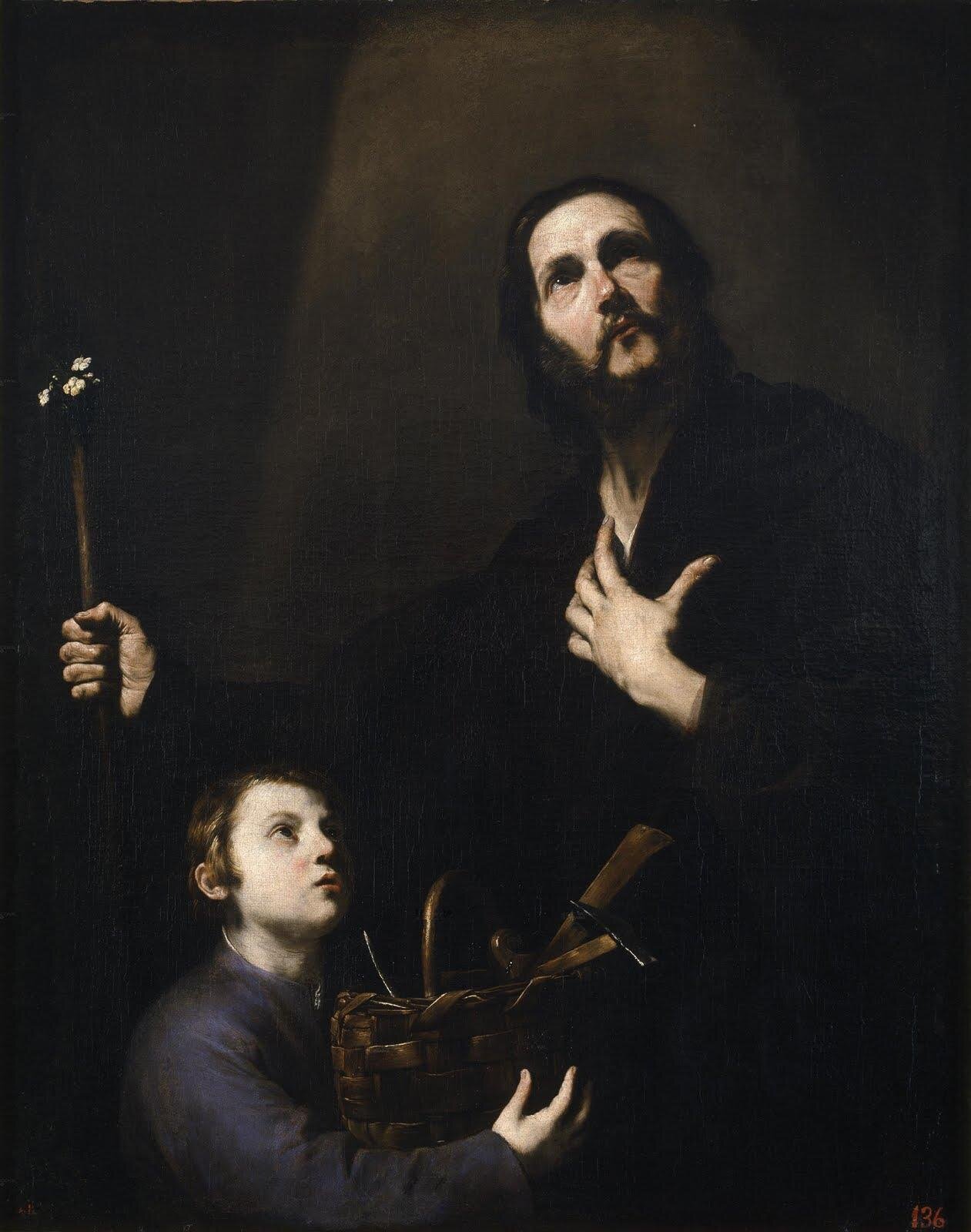Saint Joseph and the Christ Child, Jusepe de Ribera, Lo Spagnoletto
My mother had a thing for Fr. Wilfrid Dufault. Wilfrid was our former Superior General and loomed large over the history of our province. In an unguarded moment, she declared him to be a “man’s man.” (To be honest, it was rather, “He’s a hunk of a man.” I’ve cleaned it up so as to prevent any untoward thoughts about my mother).
The account of Jesus birth in Matthew’s Gospel shows Joseph to be a man’s man. You know the situation. He is betrothed to Mary, which means that, although they were not living together, their union had been already blessed by God. He then discovers that she is with child, and he wonders how this can be. Instead of directing recriminations toward Mary, our man Joseph shows his true colors by choosing to divorce her quietly. How good is that? At a time when his indignation might justifiably have gotten the upper hand, his love and concern for Mary remain steady and decisive. He wants to spare her the shame and punishment that were likely coming to her. A man’s man, indeed.
There is more. Before he is able to carry through on his intentions, Joseph is told in a dream not to be afraid to take Mary into his home. The reasons given are entirely beyond his comprehension and outlandish on the face of it. But rather than dismissing it out of hand, he takes in the message and does as the angel commands him. At this moment of crisis, one is reminded of the last-minute intervention of God’s angel to Abraham as he is about to slay his son Isaac. If there is a difference between the two pivotal scenes, the testing of Abraham’s faith has already been accomplished, and his call to be the father of faith can now move forward. Joseph’s role is more instrumental. His obedient faith, with all of its incomprehension, makes it possible for the principal actors in the scene, the Holy Spirit and his betrothed, to enact God’s saving plan.
I venture to say that Joseph is a man’s man because he is open to mystery. That cannot be taken for granted. At what point am I willing to allow that what appears to be an unmitigated disaster may be part of some larger design that is not within my purview to understand? Those are the terms on which Joseph’s decision to accept the angel’s words is made. Openness to mystery presupposes a willingness to surrender control over a mode of looking at the world and a mode of acting in the world which, however limited these may be, are nevertheless mine, and therefore hard to give up. Does it need to be said that what attracts us to Joseph is not only his allowing for the credibility of the angel’s commanding presence, but his subsequent willingness to conform his life to the message received?
Joseph’s humility, his refusal to put himself forward in service of his own interests, stands athwart the self-assertion that marks so much of our contemporary discourse. I’m guessing that this is at least one of the reasons why Pope Francis has proclaimed this coming year as the Year of St. Joseph. May he teach us what it really means to be a man’s man.
